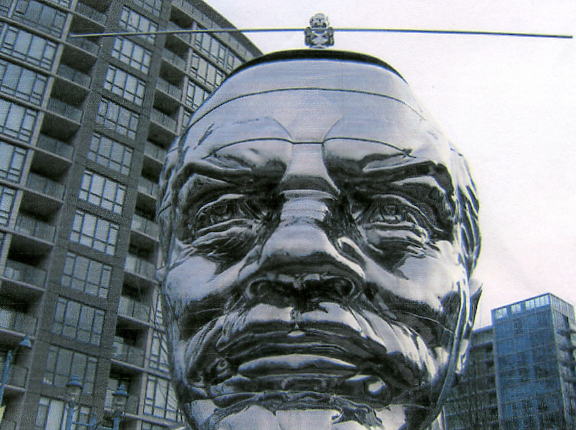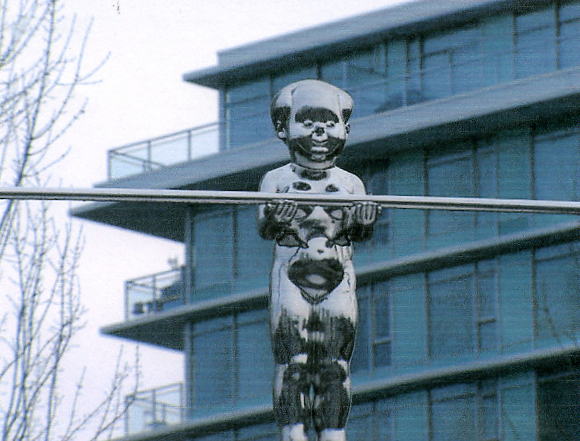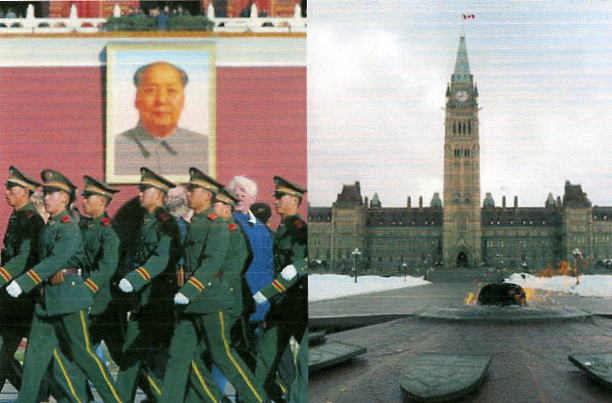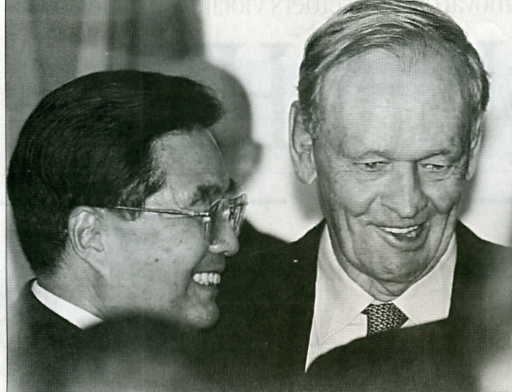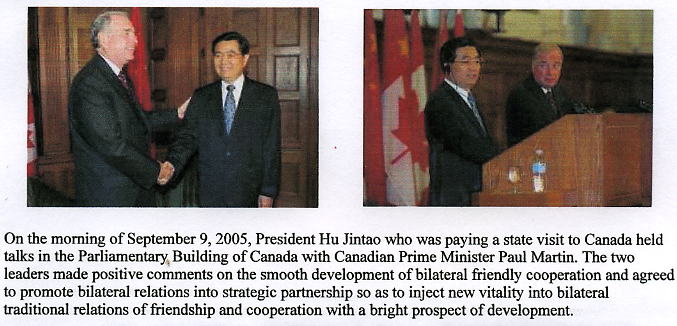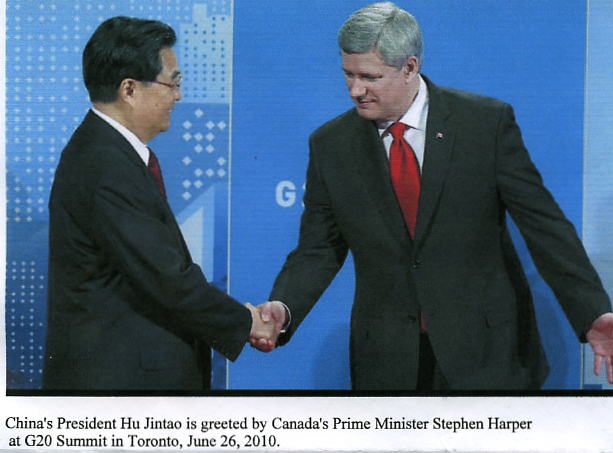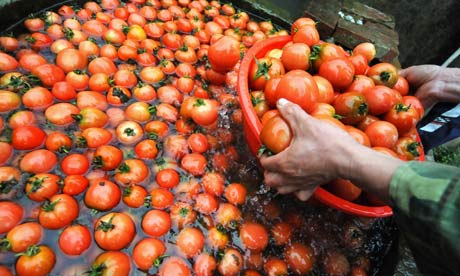China Buys Inroads in the Caribbean, Catching U.S. Notice

Jason Henry for The New York Times
Tourists and locals enjoying the view at a restaurant and bar in Nassau, a beneficiary of China's largess.
More Photos »
Published: April 7, 2012
NASSAU, the Bahamas — A brand new $35 million stadium opened here in the
Bahamas a few weeks ago, a gift from the Chinese government.
Jason Henry for The New York Times
The $35 million stadium in Nassau financed by China.
More Photos »
The tiny island nation of Dominica has received a grammar school, a
renovated hospital and a sports stadium, also courtesy of the Chinese.
Antigua and Barbuda got a power plant and a cricket stadium, and a new
school is on its way. The prime minister of Trinidad and Tobago can
thank Chinese contractors for the craftsmanship in her official
residence.
China’s
economic might has rolled up to America’s doorstep in the Caribbean,
with a flurry of loans from state banks, investments by companies and
outright gifts from the government in the form of new stadiums, roads,
official buildings, ports and resorts in a region where the United
States has long been a prime benefactor.
The Chinese have flexed their economic prowess in nearly every corner of
the world. But planting a flag so close to the United States has
generated intense vetting — and some raised eyebrows — among diplomats,
economists and investors.
“When you’ve got a new player in the hemisphere all of a sudden, it’s
obviously something talked about at the highest level of governments,”
said Kevin P. Gallagher, a Boston University professor who is an author
of a recent report on Chinese financing, “
The New Banks in Town.”
Most analysts do not see a security threat, noting that the Chinese are
not building bases or forging any military ties that could invoke fears
of another Cuban missile crisis. But they do see an emerging superpower
securing economic inroads and political support from a bloc of
developing countries with anemic budgets that once counted almost
exclusively on the United States, Canada and Europe.
China announced late last year that it would lend $6.3 billion to
Caribbean governments, adding considerably to the hundreds of millions
of dollars in loans, grants and other forms of economic assistance it
has already channeled there in the past decade.
Unlike in Africa, South America and other parts of the world where
China’s forays are largely driven by a search for commodities, its
presence in the Caribbean derives mainly from long-term economic
ventures, like tourism and loans, and potential new allies that are
inexpensive to win over, analysts say.
American diplomatic cables released through WikiLeaks and published in
the British newspaper The Guardian quoted diplomats as being
increasingly worried about the Chinese presence here “
less than 190 miles from the United States”
and speculating on its purpose. One theory, according to a 2003 cable,
suggested that China was lining up allies as “a strategic move” for the
eventual end of the Castro era in Cuba, with which it has strong
relations.
But the public line today is to be untroubled.
“I am not particularly worried, but it is something the U.S. should
continue to monitor,” said Dennis C. Shea, the chairman of the
U.S.-China Economic and Security Review Commission,
a bipartisan Congressional panel. But, he added, “With China you have
to be wary of possible policy goals behind the effort.”
This archipelago, less than a one-hour flight from Florida, has gotten
particular attention from the Chinese. Aside from the new stadium, with
its “China Aid” plaque affixed prominently at the entrance, Chinese
workers here in the Bahamas are busy helping build the $3.5 billion Baha
Mar, one of the region’s largest megaresorts.
Beyond that, a Chinese state bank agreed in recent weeks to put up $41
million for a new port and bridge, and a new, large Chinese Embassy is
being built downtown.
The new stadium here, Bahamian officials said, was in part a reward for breaking ties with
Taiwan in 1997 and establishing and keeping relations with China.
It is one of several sporting arenas that China has sprinkled in
Caribbean and Central American nations as gratitude for their
recognition of “one China” — in other words, for their refusal to
recognize Taiwan, which Chinese officials consider part of their
country.
“They offered a substantial gift and we opted for a national stadium,”
said Charles Maynard, the Bahamian sports minister, adding that his
government could never have afforded to build it on its own.
In this enduring tug of war with Taiwan, others have switched, too, with
a little financial encouragement. Grenada ended relations with Taiwan
in 2004, and it is now in talks with China about getting a new national
track and field stadium. The parting has not been entirely amicable;
Taiwan and Grenada are now locked in a financial dispute over loans that
Grenada received to finance the construction of its airport.
Determined not to be sidelined, Taiwan is seeking to solidify its
existing relationships with countries like Belize, St. Kitts and Nevis,
and St. Lucia — which in 2007 broke relations with China in favor of
Taiwan — with a bevy of projects, many of them agricultural, including
an agreement signed with Belize in recent weeks to develop the fish
farming industry there.
Still, Taiwanese diplomats in the region conceded that they could never
keep up with China’s largess but continued to make strategic investments
in the Caribbean.
There are some commodities in the region that China wants. In August, a
Chinese company, Complant, bought the last three government sugar
estates in Jamaica and leased cane fields, for a total investment of
$166 million. Last year, Jamaica for the first time shipped its famed
Blue Mountain Coffee to China.
The Jamaican government has also received several hundred million
dollars in loans from China, including $400 million announced in 2010
over five years to rebuild roads and other infrastructure.
“In order to be prosperous you need to build roads first,” said Adam Wu,
an executive with China Business Network, a consulting group for
Chinese businesses that has been making the case for China in several
Caribbean countries.
Several analysts in the Caribbean say they believe that China eventually
will emerge as a political force in the region, with so many countries
indebted to it, at a time when the United States is perceived as
preoccupied with the Middle East and paying little attention to the
region.
“They are buying loyalty and taking up the vacuum left by the United
States, Canada and other countries, particularly in infrastructure
improvements,” said Sir Ronald Sanders, a former diplomat from Antigua
and Barbuda.
“If China continues to invest the way it is doing in the Caribbean, the
U.S. is almost making itself irrelevant to the region,” he added. “You
don’t leave your flank exposed.”
In some places, Chinese contractors or workers have stayed on, beginning
to build communities and businesses. So many have opened in Roseau,
Dominica, that local merchants have complained about being squeezed out.
Trinidad and Tobago has had waves of Chinese
immigration
over the past century, but locals are now seeing more Chinese
restaurants and shops, as well as other signs of a new immigrant
generation.
“I am second-generation Trinidadian-Chinese, and like most of us of this
era, we have integrated very well in society, having friends,
girlfriends, spouses and kids with people of other ethnicities,” said
Robert Johnson-Attin, 36, a mechanical engineer now with his own
successful business. “It’ll only be a matter of time before it happens
with the Chinese coming in now.”
Here in the Bahamas, Tan Jian, the economic counselor at the Chinese
Embassy, said he that believed “it’s only the start” of the Chinese
presence across the Caribbean, casting it as one developing country
using its growing economic power to help other developing ones.
The Bahamian government, he said, “cannot afford to build huge projects by itself.”
While the Chinese built the stadium, the Bahamas is responsible for
utility hookups and the roads and landscaping outside it.
The $35 million gift “is costing us $50 million,” said Mr. Maynard, the
sports minister. “But at the end of the day it will pay for itself” by
putting the Bahamas in position to host major sporting events and reap
the tourism revenue that comes with that.
For Baha Mar, the Chinese Export-Import Bank is financing $2.6 billion,
nearly three-quarters of the cost, and China’s state construction
company is a partner.
The Bahamas agreed to allow up to 8,000 foreign workers, most of them
Chinese, to work on the project in stages, but it also required
employment for 4,000 Bahamians, dampening concerns that Chinese workers
were taking jobs. American companies will also take part in building and
running it.
Mr. Jian played down any economic competition with the United States,
whose tourists, he asserted, stood to benefit from China’s presence in
the Caribbean. The Chinese workers here live in barracks behind the
project fences, largely shielded from public view.
“We hardly know they are here,” said James Duffy, watching a track
practice next to the stadium one recent afternoon, adding with a
chuckle: “Except for the big things they build.”
Karla Zabludovsky contributed reporting from Mexico City, Camilo
Thame from Kingston, Jamaica, and Prior Beharry from Port of Spain,
Trinidad and Tobago .
 The leaked documents were sent from the e-mail
account of B.C. Premier Christy Clark's Deputy Chief of Staff last
January. (Darryl Dyck/Canadian Press)
The leaked documents were sent from the e-mail
account of B.C. Premier Christy Clark's Deputy Chief of Staff last
January. (Darryl Dyck/Canadian Press)

 Ed Fast accompanied Prime Minister Stephen Harper
on his trade-boosting Chinese tour last February. Fast is planning
another trip to China in April to promote Canadian exports, including
boosting communications technology in Shanghai, now understood to be a
hotbed of Chinese hackers with vast foreign reach. (Adrian Wyld/Canadian
Press)
Ed Fast accompanied Prime Minister Stephen Harper
on his trade-boosting Chinese tour last February. Fast is planning
another trip to China in April to promote Canadian exports, including
boosting communications technology in Shanghai, now understood to be a
hotbed of Chinese hackers with vast foreign reach. (Adrian Wyld/Canadian
Press)
